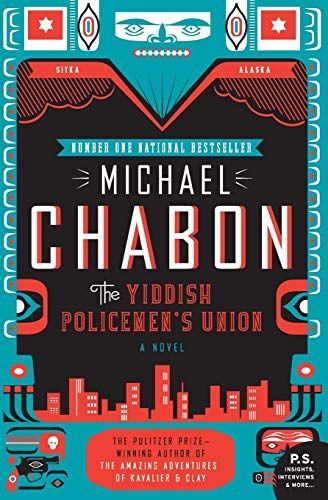
The Yiddish Policemen's Union
The brilliantly original new novel from Michael Chabon, author of THE ADVENTURES OF KAVALIER & CLAY and WONDER BOYS. What if, as Franklin Roosevelt once proposed, Alaska - and not Israel - had become the homeland for the Jews after the Second World War? In Michael Chabon's Yiddish-speaking 'Alyeska', Orthodox gangs in side-curls and knee breeches roam the streets of Sitka, where Detective Meyer Landsman discovers the corpse of a heroin-addled chess prodigy in the flophouse Meyer calls home. Marionette strings stretch back to the hands of charismatic Rebbe Gold, leader of a sect that seems to have drawn its mission statement from the Cosa Nostra. Meyer is determined to unsnarl the meaning behind the murder. Even if that means surrendering his badge and his dignity to the chief of Sitka's homicide unit - his fearsome ex-wife Bina. A novel of colossal ambition and heart, THE YIDDISH POLICEMEN'S UNION interweaves a homage to the stylish menace of 1940s film noir with a bittersweet fable of identity, home and faith.
Reviews
Gabe Cortez@gabegortez
Sarah Sammis@pussreboots
James Feinberg@jamesfeinberg
Laura Mauler@blueskygreenstrees
Janice Hopper@archergal
Trever@kewlpinguino
Yulande Lindsay@lande5191
Robin M Cabana@rmcabana
Jeanie Cha@ahceinaej
Melody Izard@mizard
Laura@readingthroughlondon
Daryl Houston@dllh
Joshua Line@fictionjunky
Ben Nathan@benreadssff
Kali Nichta@kalinichta
Juan Sacco@catsup_plate
Sara Sunshine@sarasunsh
Cody Degen@codydegen
Jayme Cochrane@jamesco
Channing Williford@channing
Will Vunderink@willvunderink
Hannah Swithinbank@hannahswiv
Klaus Eck@klauseck
Michael Cowell@chaosweeper